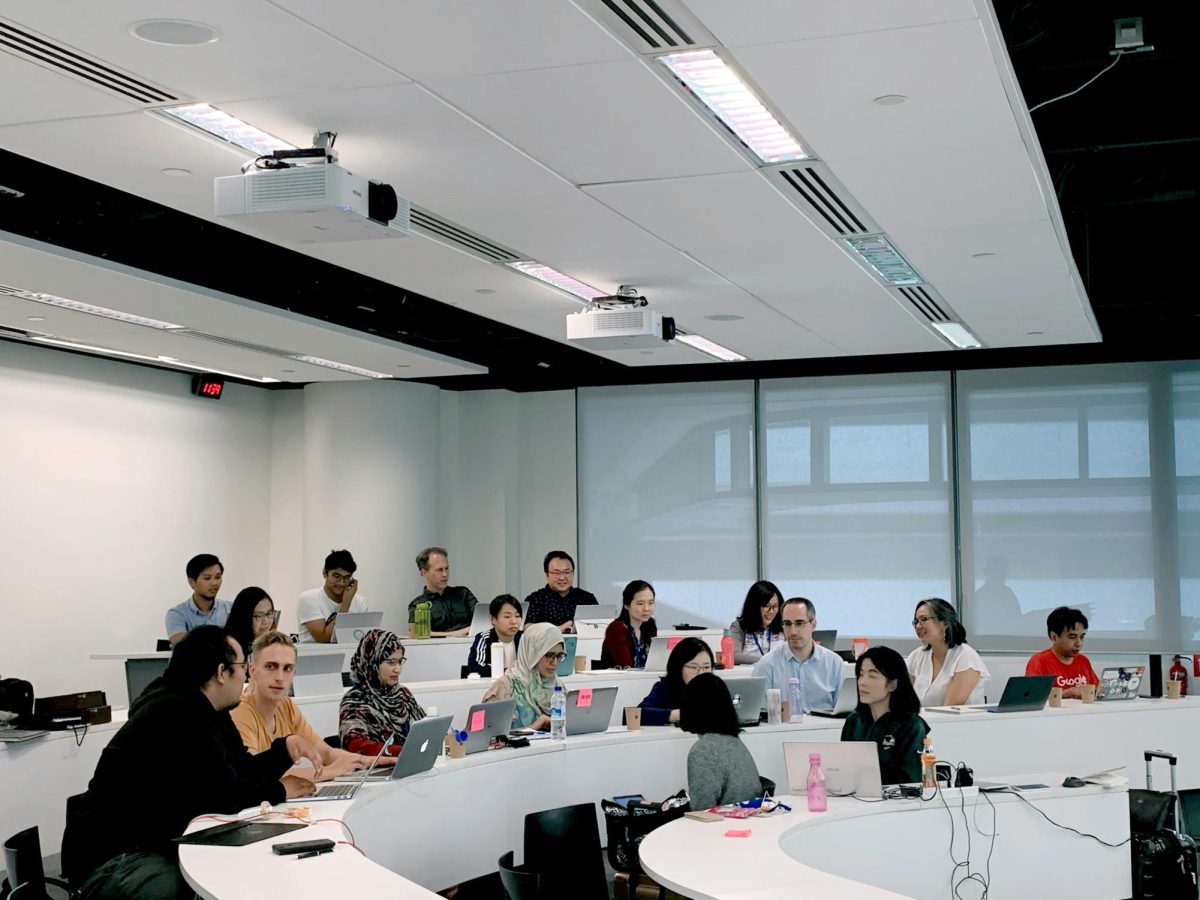By Eric Bergman/reporter
Preparation is a key point in a successful interview, the South Campus career center coordinator told students last month.
How To Get That Job: Mastering Your Next Job Interview, Monica Bettle helped students to brush up and pick up new skills with ideas for job interviews.
Bettle opened with the most simple “getting down to the basics.” She said the interview indicates the company “already likes you on paper” and would like to meet in person.
” This is your chance to show an employer what they will get when you are hired,” she said. Bettle said industry knowledge and attention to details “like your personal appearance, punctuality, and demeanor” are of the utmost importance because they set one applicant apart from another.
Bettle described five types of interviews. “Screening, selection, group, panel and stress are what are used today,” she said.
The most common are the group and panel now.
In the screening interview, the goal is “to find out if you meet the minimum qualifications for the position.” Typically the potential employer verifies information at this point, and the interview can be in person or on the telephone. This is simply the first and quickest round of elimination for the employer, Bettle said.
“ [Group interview] is typically for high volume workers such as at a warehouse,” she said.
They look for the team players, find out if the people being interviewed would intertwine well with the company and compare the people for leaders and followers.
” Four to eight people typically make up the panel interview, ” she said.
Bettle said this can be intimidating to some because the questions can come in rapid succession, but she said to “remain calm and establish rapport with each member of the panel showing that you can keep a cool head under pressure and to be sure to make eye contact with each member of the panel as you answer their questions.”
The stress interview is about the “mind games,” Bettle said.
This style of interview is used almost exclusively for jobs that deal with constant adversity and helps to “weed out those that cannot handle it,” she said. “You may be asked weird questions, and the interviewer may ask questions so fast you will not be able to answer them all.”
Bettle said it is not unusual to even have total silence after an answer.”
“ Research is important when preparing for an interview,” she said.
“ Learn all you can about the company and how to market yourself for them,” she said. “Practice, practice more and then practice some more on your skills. Your eye contact, body language, and study your posture.”
The interviewer asking questions is the one to make eye contact with.
Interviewers will ask the usual questions about goals, strengths, weaknesses and conflict resolution. Bettle said to describe and explain details about professional career only, not personal information.
” Be aware of illegal questions as you do not have to answer them,” she said. Since interviewers ask increasingly more complex questions as the interview goes on, the answers should have more depth. The applicant should take notes to help formulate the proper answers.
” Prepare mini-stories that deal with a situation, an analysis, your actions, and the results of your actions,” she said.
Once the interviewer’s questions are finished, the applicant should ask one or two questions. Bettle said salary is off limits, but advancement, development and training are acceptable.
” Tactfully ask when you will be advised of the decision,” she said. And if offered the position, “ask for time to consider the offer thoroughly.”
Bettle said to end with a firm handshake and thank the interviewer.
The follow-up to the interview is often overlooked, Bettle said. She suggested getting the interviewers business card and sending a thank you note.
” Keep it beief by rethanking them for their time, reiterate a few key skills you have and that you look forward to hearing from them,” she said.
Bettle said appearance is another important factor.
” The initial appearance is how you are judged,” she said.
The clothing should add to the appearance, not detract and over-dressing is better than under-dressing, Bettle said.
” Be comfortable in your outfit and try it on a few days in advance,” she said. “Neat and ironed with no bulging.”
Bettle provided a final checklist, which included “having your hair neatly trimmed, minimal jewelry, minor fragrances and clean nails.” “Make sure there are no runs in the stockings, all buttons are on clothing, neck ties are straight and shoes are polished up well.”
For further information regarding interviewing and the process, go to the Web sites: www.usajobs.opm.gov; www.jobweb.com; www.2.thomasmore.edu; www.chesgroup.com or contact Bettle at monica.bettle@tccd.edu or 817-515-4737.


























